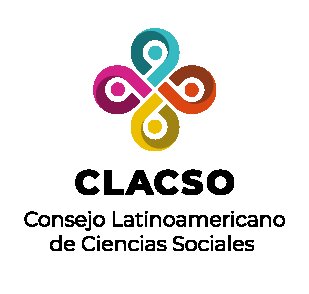Autores/as
Resumen
Objetivo. Conocer las representaciones sociales de estudiantes de trabajo social, respecto de los desastres socio-naturales que ocurren en su territorio y opciones de intervención/gestión social que reconocen. Metodología. Cuantitativa, de diseño estudio de caso. Participaron estudiantes de las regiones de Atacama y Coquimbo en Chile, que han enfrentado DSN recientes como aluviones, terremoto y sequía. Resultados. Los hallazgos dan cuenta del reconocimiento de la influencia antrópica en los desastres a partir del extractivismo, la prevalencia de una noción de naturaleza de tipo ecocéntrica y la importancia de la acción profesional como vía para la reducción del riesgo. Conclusiones. Relevancia de incluir en la formación en trabajo social, eco-saberes teóricos, metodológicos y procedimentales que problematicen la dimensión ética del vínculo sociedad-territorio-naturaleza.
Citas
Beck, U. (2002). La Sociedad del riesgo. Siglo Veintiuno de España Editores.
Berroeta, H., Ramoneda, Á. y Opazo, L. (2015). Sentido de comunidad, participación y apego de lugar en comunidades desplazadas y no desplazadas post desastres: Chaitén y Constitución. Universitas Psychologica, 14(4), 1221-1234. https://doi.org/10.11144/Javeriana.up14-4.scpa
Boetto, H. and Bell, K. (2015). Environmental sustainability in social work education: An online initiative to encourage global citizenship. International Social Work. 58(3), 448-462. https://doi.org/10.1177/0020872815570073
Bolados, P., Henríquez, F., Ceruti, C. y Sánchez, A. (2018). La eco-geo-política del agua: una propuesta desde los territorios en las luchas por la recuperación del agua en la provincia de Petorca (Zona central de Chile). Revista Rupturas, 8(1), 159-191. https://doi.org/10.22458/rr.v8i1.1977
Bündnis Entwicklung Hilft. (2018). The World Risk Report: Focus on protection and children’s rights. (Informe N° 8). https://bit.ly/3alxOpf
Castillo, A., Suárez, J. y Mosquera, J. (2017). Naturaleza y sociedad: relaciones y tendencias desde un enfoque eurocéntrico. Luna Azul, 44, 348-371. DOI: 10.17151/luaz.2017.44.21
Castro, V. (2018). Etnoarqueologías andinas. Ediciones Universidad Alberto Hurtado. Centre for Research on the Epidemiology of disaster. (2020). Natural Disaster 2019: Now it’s the time to not give up. (Informe N°6). https://cred.be/sites/default/files/adsr_2019.pdf
Chonody, J., Sultzman, V. and Hippie, J. (2019). Are Social Work Students Concerned About the Environment?: The Role of Personal Beliefs. Journal of Social Work Education, 55(3), 1-16. https://doi.org/10.1080/10437797.2019.1661907
Cohen, G., Tamrakar, S., Lowe, S., Sampson, L., Ettman, C., Kilpatrick, D. and Galea, S. (2019). Improved social services and the burden of post-traumatic stress disorder among economically vulnerable people after a natural disaster: a modelling study. The Lancet Planetary Health, 3(2), 93-101.
https://doi.org/10.1016/S2542-5196(19)30012-9
CRED. (2021) Disasters in numbers. 2022. https://cred.be/sites/default/files/2021_EMDAT_report.pdf
Di Baldassarre, G., Sivapalan, M., Rusca, M., Cudennec, C., Garcia, M., Kreibich, H., Konar, M., Mondino, E., Mård, J., Pande, S., Sanderson, M. R., Tian, F., Viglione, A., Wei, J., Wei, Y., Yu, D. J., Srinivasan, V. and Blöschl, G. (2019). Socio-hydrology: Scientific challenges in addressing a societal grand challenge. Water Resources Research, 55(8), 6327-6355. https://doi.org/10.1029/2018WR023901.
Dominelli, L. (2018). The Routledge Handbook of Green Social Work. Routledge Editions.
Garlington, S. and Collins, M. (2021). Addressing environmental justice: Virtue ethics, social work, and social welfare. International Journal of Social Welfare, 30, 353-363. https://doi.org/10.1111/ijsw.12466
Gibson, A., Walsh, J. and Brown, L. (2018). A perfect storm: Challenges encountered by family caregivers of persons with Alzheimer’s disease during natural disasters. Journal of Gerontological Social Work, 61(7), 775-789. https://doi.org/10.1080/01634372.2018.1474158
González-Ramírez, A. M., Güiza, F., Reyes-Quintero, M. S., Méndez-López, M. E. y Torres-Lima, P. (2022). Vulnerabilidad Socioambiental desde los Feminismos Comunitarios: El Desastre por el Sismo del 19S en Tetela del Volcán. Revista de Estudios Latinoamericanos sobre Reducción del Riesgo de Desastres REDER, 6(1), 35-50. https://doi.org/10.55467/reder.v6i1.83
Gudynas, E. (2014). Derechos de la naturaleza: Ética biocéntrica y políticas ambientales. Editorial Tinta Limón.
Jodelet, D. (2011). Aportes del enfoque de las representaciones sociales al campo de la educación Espacios en Blanco. Revista de Educación, 21, 133-154.
Hantman, S. and Ben-Oz, M. (2013). There are no shortcuts: Trusting the social work training process. Journal of Social Work, 14(5), 491-505.
https://doi.org/10.1177/1468017313478351
Harms, L., Boddy, J., Hickey, L., Hay, K., Alexander, M., Briggs, L., and Hazeleger, T. (2020). Post-disaster social work research: A scoping review of the evidence for practice. International Social Work. https://doi.org/10.1177/0020872820904135
Hayward, R., and Joseph, D. (2018). Social Work Perspectives on Climate Change and Vulnerable Populations in the Caribbean: Environmental Justice and Health. Environmental Justice, 11(5), 192-200. http://dx.doi.org/10.1089/env.2018.0008
Hickson, H. and Lehmann, J. (2014). Exploring Social Workers’ Experiences of Working with Bushfire-affected Families, Australian Social Work, 67(2), 256-273. https://doi.org/10.1080/0312407X.2013.832788
Howard, A., Agllias, K., Bevis, M. and Blakemore, T. (2018). How Social Isolation Affects Disaster Preparedness and Response in Australia: Implications for Social Work. Australian Social Work, 71(4), 392-404. https://doi.org/10.1080/0312407X.2018.1487461
Hsiao, H.-Y., Hsu, C.-T., Chen, L., Wu, J., Chang, P.-S., Lin, C.-L. y Lin, T. (2019). Environmental Volunteerism for Social Good: A Longitudinal Study of Older Adults’ Health. Research on Social Work Practice, 44(4), 459-469. https://doi.org/10.1177/1049731519892620
Huanacuni, F. (2010). Buen Vivir/Vivir Bien. Filosofía, políticas, estrategias y experiencias regionales andinas. Coordinadora Andina de Organizaciones Indígenas.
Kranke, D., Schmitz, S., Der-Martirosian, C. and Dobalian, A. (2016). Stigma as a barrier to engaging in mental health services among adolescents who survive natural disasters. Social Work in Mental Health, 15(2), 171-183. https://doi.org/10.1080/15332985.2016.1199392
Krings, A., Victor, B., Mathias, J. and Perron, B. (2020). Environmental social work in the disciplinary literature, 1991–2015. International Social Work, 63(3), 275-290. https://doi.org/10.1177/0020872818788397
Larenas, A., Salgado, A. y Fuster F., X. (2015). Enfrentar los desastres socionaturales desde los capitales y recursos comunitarios: el caso de la erupción volcánica de Chaitén, Chile. Magallania, 43(3), 125-140. https://doi.org/http://dx.doi.org/10.4067/S0718-22442015000300010.
Maglajlic, R. (2019). Organization and delivery of social services in extreme events: Lessons from social work research on natural disasters. International Social Work, 63(3), 1146-1158. https://doi.org/10.1177/0020872818768387
Martínez-Alier, J. (2002). El ambientalismo de los pobres: Conflictos ambientales y lenguajes de valoración. Icaria.
McBride, B., Brewer, C., Berkowitz, A. and Borrie, W. (2013). Environmental literacy, ecological literacy, ecoliteracy: What do we mean and how did we get here? Ecosphere, 4(5), 67. http://dx.doi.org/10.1890/ES13-00075.1
Mhlanga, C., Muzingili, T. and Mpambela, M. (2019). Natural disasters in Zimbabwe: the primer for social work intervention. African Journal of Social Work, 9(1), 46-54.
Moscovici, S. (1979), El psicoanálisis, su imagen y su público. Buenos Aires, Huemul.
Muttarak, R. and Lutz, W. (2014). Is education a key to reducing vulnerability to natural disasters and hence unavoidable climate change? Ecology and Society, 19(1), 42-50. http://dx.doi.org/10.5751/ES-06476-190142
National Oceanic and Atmospheric Administration. (2020). Global Climate Report - Annual 2020. Estudios del clima global. Editorial NOAA
https://www.ncdc.noaa.gov/sotc/global/202013/supplemental/page-6
Nuñez, J. y Koen, V. (2018). Atlas de sequías de América Latina y el Caribe. Editorial UNESCO.
Nuttman-Shwartz, O. and Sternberg, R. (2016). Social Work in the Context of an Ongoing Security Threat: Role Description, Personal Experiences and Conceptualisation. British Journal of Social, 47(3), 903-918. https://doi.org/10.1093/bjsw/bcw053
Ojeda, D. y López, O. (2017). Relaciones intergeneracionales en la construcción social de la percepción del riesgo. Desacatos, 54(1), 106-121. https://bit.ly/3yViWbi
Osmanaga, F. (2014). Perception of the future Social Workers about environmental issues. Mediterranean Journal of Social Sciences, 5 (19), 121-125. doi:10.5901/mjss.2014.v5n19p121.
Prost, S., Appel, H. and Ai, A. (2018). Coping and Post-traumatic Stress after Hurricanes Katrina and Rita: Racial Disparities in Social Work Student-Practitioners. Journal of Social Service Research, 44(4), 459-469. https://doi.org/10.1080/01488376.2018.1476296
Pyles, L. (2017). Decolonising Disaster Social Work: Environmental Justice and Community Participation. British Journal of Social Work, 47(3), 630-647. https://doi.org/10.1093/bjsw/bcw028
Rambaree, K., Båld, M. & Backlund.(2022). Worlds apart! Environmental injustices in Mauritius, Peru and Sweden. International Social Work, 65(1), 52-66.
https://doi.org/10.1177/0020872819889391
Rambaree, K. (2020). Environmental social work: Implications for accelerating the implementation of sustainable development in social work curricula. International
Journal of Sustainability in Higher Education, 21(3), 557-574. https://doi.org/10.1108/IJSHE-09-2019-0270
Santos, B de S. (2010). Para descolonizar Occidente. Más allá del pensamiento abismal. Universidad de Buenos Aires Publicaciones.
Servicio Nacional de Geología y Minería [SERNAGEOMIN]. (2017). Catastro de Desastres Naturales. https://bit.ly/3MJW7vt
Takayama, K. (2017). Disaster Relief and Crisis Intervention with Deaf Communities: Lessons Learned from the Japanese Deaf Community. Journal of Social Work in Disability & Rehabilitation, 16(3-4), 247-260.
United Nations Office for Disaster Risk Reduction y Centre for Research on the Epidemiology of Disasters United Nations Office for Disaster Risk Reduction. (2018). Economic, Losses, Poverty & Disaster 1998-2017. https://www.preventionweb.net/files/61119_credeconomiclosses.pdf
Urteaga, E. y Eizagirre, A. (2013). La construcción social del riesgo. EMPIRIA, Revista de Metodología de las Ciencias Sociales, (25), 147-170. https://doi.org/10.5944/empiria.25.2013
Yin, R. (2014). Case Study Research: Design and Methods (Applied Social Research Methods). Sage Publications.
Zhang, X., Song, J., Peng, J. and Wu, J. (2019). Landslides-oriented urban disaster resilience assessment—A case study in ShenZhen, China. Science of The Total Environment, (661), 95-106. https://doi.org/10.1016/j.scitotenv.2018.12.074

 PDF
PDF
 FLIP
FLIP





























